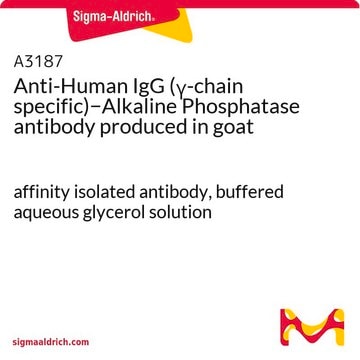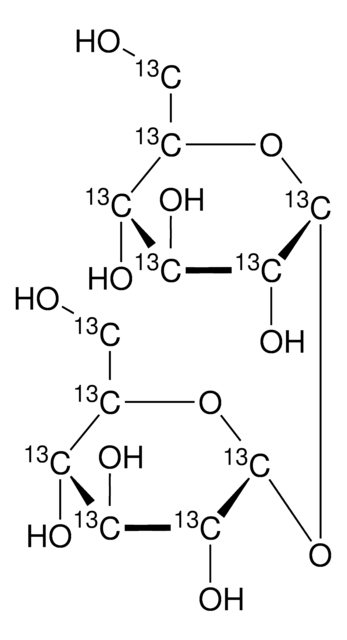A2064
Anti-Human IgG−Alkaline Phosphatase antibody, Mouse monoclonal
clone GG-5, purified from hybridoma cell culture
Synonym(s):
Monoclonal Anti-Human IgG (γ-chain specific)
About This Item
Recommended Products
biological source
mouse
Quality Level
conjugate
alkaline phosphatase conjugate
antibody form
purified immunoglobulin
antibody product type
secondary antibodies
clone
GG-5, monoclonal
form
buffered aqueous glycerol solution
species reactivity
human
technique(s)
direct ELISA: 1:50,000
dot blot: 1:80,000
immunohistochemistry: suitable
western blot (chemiluminescent): 1:80,000
isotype
IgG1
Looking for similar products? Visit Product Comparison Guide
General description
Application
- enzyme linked immunosorbent assay (ELISA)
- western blotting
- dot blot
- immunohistology
Physical form
Disclaimer
Not finding the right product?
Try our Product Selector Tool.
Storage Class Code
10 - Combustible liquids
WGK
WGK 2
Personal Protective Equipment
Certificates of Analysis (COA)
Search for Certificates of Analysis (COA) by entering the products Lot/Batch Number. Lot and Batch Numbers can be found on a product’s label following the words ‘Lot’ or ‘Batch’.
Need A Sample COA?
This is a sample Certificate of Analysis (COA) and may not represent a recently manufactured lot of this specific product.
Already Own This Product?
Find documentation for the products that you have recently purchased in the Document Library.
Customers Also Viewed
Our team of scientists has experience in all areas of research including Life Science, Material Science, Chemical Synthesis, Chromatography, Analytical and many others.
Contact Technical Service














